
Brucellosis is a zoonotic infection caused by the bacterial genus Brucella. Like all zoonoses, brucellosis can be transmitted from infected animals to humans. Brucellosis is also known as Mediterranean fever, Malta fever, gastric remittent fever, undulant fever, contagious abortion and Bang’s disease. Animals that are most commonly infected include sheep, cattle, goats, pigs and dogs.
There are many sub-types of the Brucella genus, with B. abortus most common in cattle, B. melitensis and B. ovis most common in sheep and goats and B. suis most common in pigs (see table).
ANIMALS
Brucellosis is most commonly not a fatal disease, with the mortality rate low. However, the disease can do great damage to animals in terms of their production or production potential, with decreased milk production, weight loss, abortion, infertility and lameness all possible side effects from the disease. The disease is also highly contagious, making it a threat to herds and flocks. According to the State of New Jersey Department of Agriculture (SNJDA), animals can be infected through direct contact with other infected animals, or with an environment that has been contaminated with discharge, such as afterbirth, aborted foetuses and other fluids, from infected animals. A healthy animal can become infected through the licking or consumption of these infected discharges.
This story is from the February 16, 2024 edition of Farmer's Weekly.
Start your 7-day Magzter GOLD free trial to access thousands of curated premium stories, and 9,000+ magazines and newspapers.
Already a subscriber ? Sign In
This story is from the February 16, 2024 edition of Farmer's Weekly.
Start your 7-day Magzter GOLD free trial to access thousands of curated premium stories, and 9,000+ magazines and newspapers.
Already a subscriber? Sign In
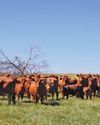
The genetically unique Senepol: ideal for beef production in Southern Africa
Since its arrival in South Africa in 2001, the Senepol has become a strong contender in the country's beef cattle arena. Tiekie Muller, owner of the Nooitgedacht Senepol stud, spoke to Annelie Coleman about how the growing number of Senepol stud breeders underpins the value of the breed under exacting African conditions.

Microwave mango and granadilla cheesecake
This delicious mango fridge tart is so easy to make, perfect when you want a quick yet indulgent dessert (it only takes 25 minutes to whip up). The fruit’s gorgeous colour and fragrance are maximised.
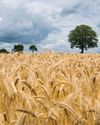
Global outlook for wheat in 2024/25
In its latest estimate, the International Grains Council has adjusted global wheat production for the coming season due to poorer-than-expected harvests in the EU. However, global supplies remain strong, while global consumption is expected to increase to reach about 804 million tons. Janine Ryan reports.
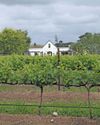
From fallow land to award-winning wines: the Newstead story
Newstead Lund Family Vineyards, a relatively new wine estate, has established itself as one of the best producers of sparkling wine in South Africa. Owners Doug and Sue Lund spoke to Glenneis Kriel about their production philosophy, rise to success, and possible expansion plans.

Fact file of fungal diseases in wheat
Wheat is a significant crop, and like other crops, is susceptible to a range of infections. Here, we provide information on the most important fungal diseases that affect wheat.
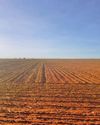
Soil preparation for wheat and other cereals
For seed to germinate and plants to grow, soil often needs to be prepared. The manner in which it is done depends on the type of soil, the organic matter and moisture it contains, the crop to be planted, as well as the previous crop that was planted in the field. Magda du Toit spoke to cereal experts and farmers for guidance.

The origin of the Bonsmara
The Breed of the Month for March is the Bonsmara. In this first article, we take a look at the man behind this popular cattle breed, as well as how it was developed.

The Southern Sun Cape Sun hotel is once again a destination of choice
While some of its contemporaries have suffered from inner-city neglect, the Southern Sun Cape Sun hotel has bounced back in elegance and style, writes Brian Berkman.

Age catches up with the Nissan Navara
The Navara line-up was increased last year in Nissan's effort to win back market share. The Citizen's Mark Jones sampled the top-of-the-range Pro-4X to see how the double cab compares with modern bakkies.
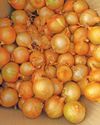
Growing onion sets
Bill Kerr discusses what onion sets are, and how and when to produce them to obtain the maximum financial benefit.